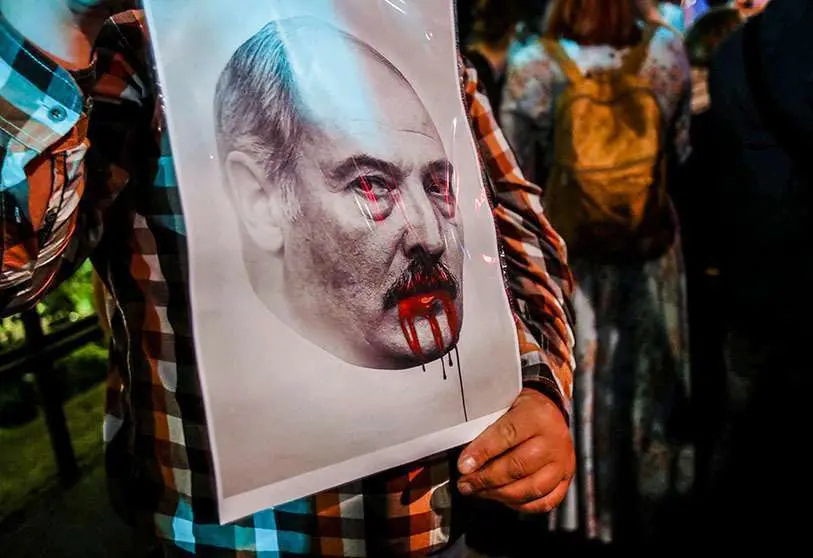Even if the dictator dresses in silk democracy...

... In dictator stays. The satrap who has ruled Belarus for more than two decades was not prepared to give up power, particularly as in addition to perpetuating himself in power he increasingly claims that on the day he is absent his son will succeed him in the chair. He is not the first to harbour intentions of establishing a hereditary communist dictatorship. There are the examples of North Korea and Cuba to prove it.
The latest elections seem to show, even more than the previous ones if possible, that Alexander Lukashenko has no intention of relinquishing power, and that he is willing to do anything to keep it. In the wake of the previous elections, the European Union embraced the idea of converting the man dubbed the last dictator of Europe' to democratic values. Under pressure from Vladimir Putin's Russia, Lukashenko tried to play the game of equidistance: he released political prisoners, got the EU to lift sanctions and even obtained financial aid of 30 million euros per year from Brussels. Neighbouring countries, especially Poland and the Baltic states, thought that Lukashenko could become a dyke against a Russia they feared would one day be tempted to invade them again and subject them to their iron grip. Donald Trump's United States came to share such a view, thus considering Belarus as a buffer state between NATO's area of influence and that of Russia.
All this geopolitical construction has come crashing down with the last presidential elections on August 9th. Lukashenko has returned to the way he used to, namely to the brutal repression of those who dare to oppose him. All the candidates who could shadow him were imprisoned and State Security (Belarus is the only ex-Soviet country that retains the fearsome acronym KGB) became more present and threatening than ever.
The Minsk dictator, however, belittled the ability of a last-minute candidate, former English teacher Svetlana Tijanóskaya, to stand in for her husband, the well-known blogger Sergei Tijanovski, who was imprisoned along with other opposition leaders. In the quarter of a century that Lukashenko has been exercising his authoritarianism, never before have such massive rallies and demonstrations taken place both in the capital, Minsk, and in the country's main provinces to cheer the candidate, who was also supported by two other women, Veronika Tsepkalo and Maria Kolesnikova, who were linked to other candidates also vetoed by Lukashenko. Tijanóskaya and Tsepkalo have both fled Belarus for refuge in Lithuania, and Kolesnikova was about to do so. The threat of reprisals against their families hangs over all three of them.
That, under such conditions, the Electoral Commission attributes 80% of the votes cast to Lukashenko, rather than arousing suspicions of pouting, accentuates them. The Belarusian dictator is said to have received a serious warning from Moscow to nip in the bud any attempt to have the protests give birth to another Maidán, in reference to the movement that took over the main square in Kiev and ended up evicting the leaders of Ukraine who were in favour of closer ties with Russia. That change of policy, in which Ukraine even started the procedure for joining the EU and NATO, so irritated Moscow that Putin, after the conquest of the Crimean peninsula, launched the insurrection in the east of the country, whose war has consummated the de facto split of the Lugansk and Donetsk provinces.
Everything suggests, therefore, that Lukashenko will tighten up the repression in order to dispel the hopes that Belarusian youth once harboured for their country as an aspirant to integrate into liberal Europe. He will tighten his ties with Putin, who will loosen or tighten his noose at his convenience. This will increase their dependence on Moscow, and consequently the EU countries bordering Russia and Belarus will increase their fears.

